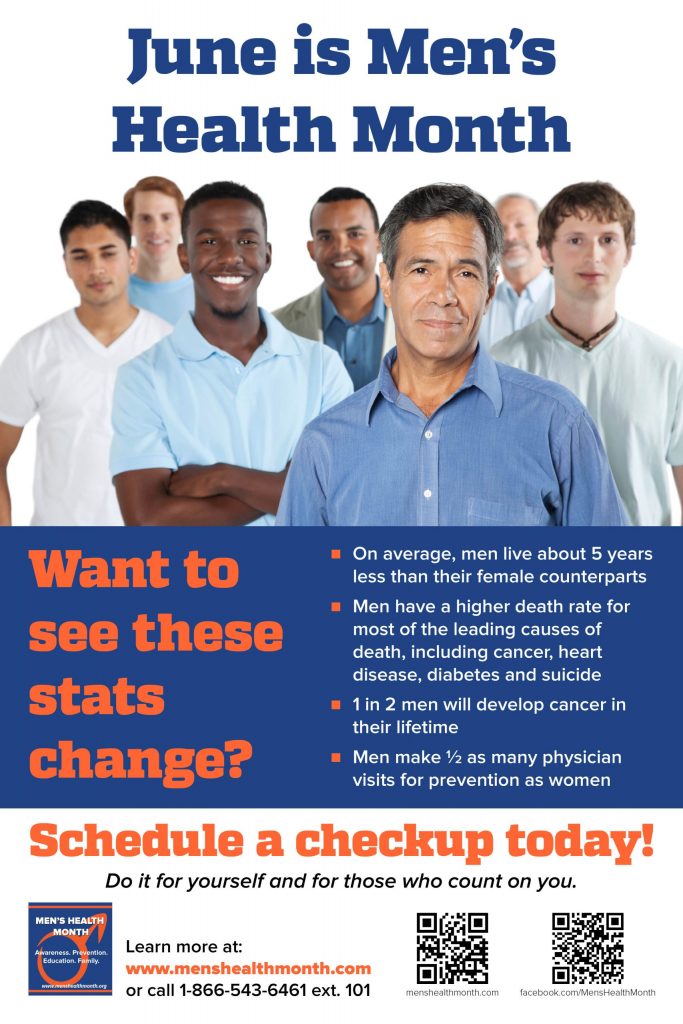Men’s Health Month: Cardiovascular Health
- Bobby Banahan
- May 30, 2023
- 3 min read
Each year in June America observes Men’s Health Month, an awareness campaign that spotlights some of the most critical health issues impacting men today. Aimed at educating men about risks and encouraging them to undergo important screenings and detection efforts, Men’s Health Month helps eradicate many of the health issues affecting men and boys by highlighting the importance of preventative care.
While there are many health issues impacting men today, heart disease is of particular concern. Heart disease is currently the leading killer of American men, and more than half of all men who succumb to sudden coronary artery disease have no prior symptoms. For this reason, learning how to identify and prevent heart disease and associated conditions is of the utmost importance during Men’s Health Month – and throughout the remainder of the year.
Common heart health mistakes men make
Recognizing the common mistakes men make when it comes to their heart health should help you avoid making similar errors yourself. To maximize heart health, avoid making the following blunders.
Thinking you’re too young for heart issues
Men tend to develop heart problems earlier than women. In fact, men tend to develop coronary artery disease 10 years before women, on average. Contrary to popular belief, some men even start experiencing heart issues during their 30s or 40s, rather than their 50s, 60s or 70s.
Forgoing preventative care
Another common error involves blowing off your annual checkups. Men are statistically less likely than women to see their doctors on a regular basis. They are also less likely to schedule appointments with physicians after experiencing heart-related symptoms, such as chest pain or fatigue.
Not recognizing the link between heart health and erectile disfunction
If you’re having trouble performing in the bedroom, do not overlook the possibility of your heart health being to blame. Impotence often results from a lack of blood flow to the penis. If this is an issue for you, damaged blood vessels may be the root cause.
How Often Heart Disease Affects Men
The Centers for Disease Control and Prevention report that heart disease contributes to one in four male deaths across the United States. In 2019 alone, heart disease claimed the lives of 357,761 men and remains the leading cause of death among white, Black, Hispanic, American Indian and Alaska Native men.
Common symptoms of heart disease include:
Chest pain/discomfort
Shortness of breath
Indigestion/heart burn
Extreme fatigue
Dizziness
Swelling of the feet, hands, ankles, legs, abdomen or leg veins
Common risk factors for heart disease include:
Obesity/poor diet
Excessive alcohol consumption
Diabetes
Sedentary lifestyle
If you experience any of the symptoms associated with heart disease, or if you have any of the aforementioned risk factors that place you at an elevated risk for heart disease, talk to your doctor about how to mitigate these risks.
How to Reduce Your Risk of Heart Disease
While seeing your doctor regularly is an important part of monitoring your heart health risks and identifying potential problems before they worse, there are also steps you can take in your day-to-day life to reduce your risk of heart disease. To boost your heart health and lower your risk of heart problems, consider making the following efforts.
Amp up your daily activity
There’s a clear link between low levels of physical activity and heart disease risk, but you can reduce your risk level by making sure to get between about 30 and 60 minutes of exercise each day. Even walking the dog or taking the steps, as opposed to the elevator, helps reduce heart disease risks.
Modify your diet
Certain foods help boost heart health, among them fruits, veggies, beans, whole grains and healthy fats. Similarly, certain foods have negative effects on heart health, such as salt, sugar, alcohol and processed carbohydrates. Adding more heart-healthy foods while reducing your consumption of the bad ones can improve blood pressure, lower cholesterol and strengthen your overall heart health.
Get enough sleep
Failing to get enough sleep exposes you to a higher risk of obesity, depression, diabetes and heart attack. As an adult, aim for at least seven hours of sleep per night to help ward off heart disease risks.
Undergo regular screenings
Many heart issues are hard to identify without medical intervention. Make sure to undergo regular screenings to assess your blood pressure, cholesterol levels and other areas that impact heart health.
Strong men place their health first. While Men’s Health Month serves as a reminder to see your doctor and assess your lifestyle, there are also important steps you can take to lower your risk factors, identify potential problems and otherwise prioritize your heart health not only in June, but all year long.
NOTE: updated and republished May 31, 2023.




Comments